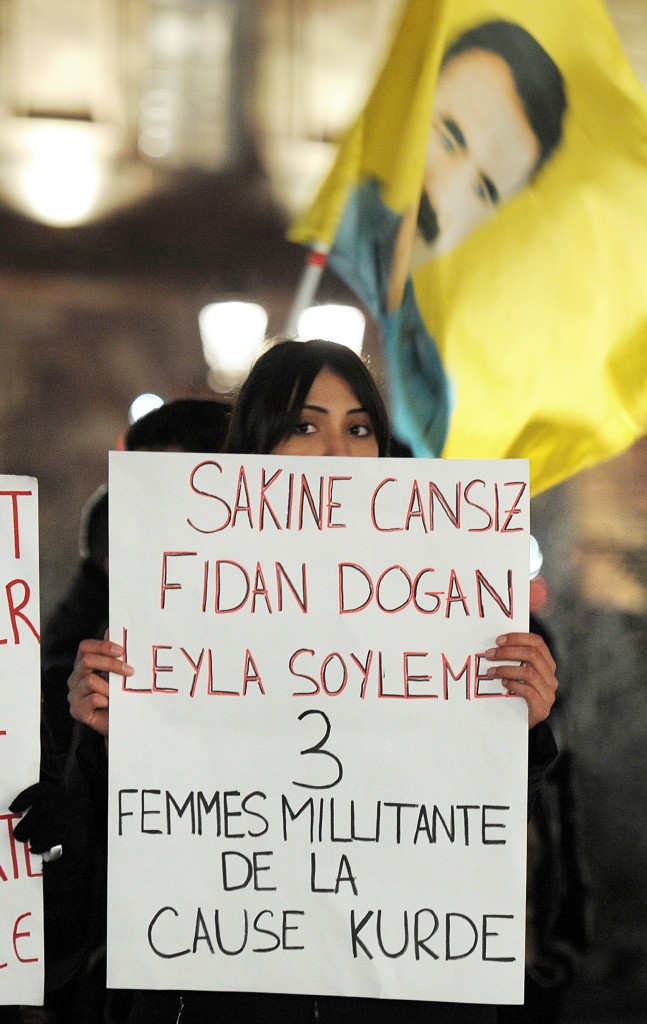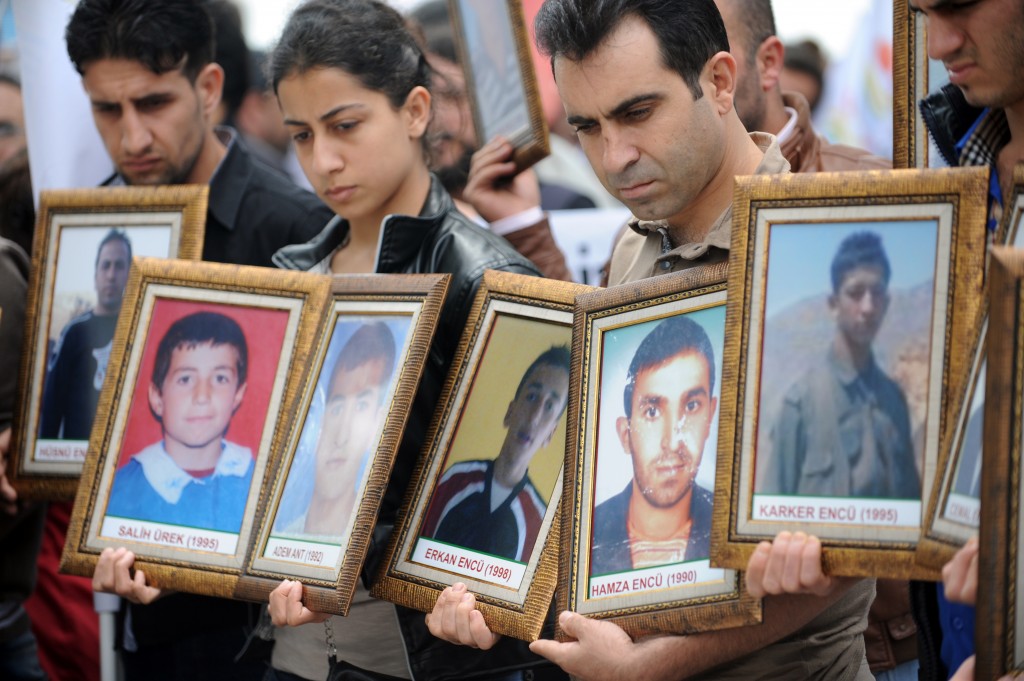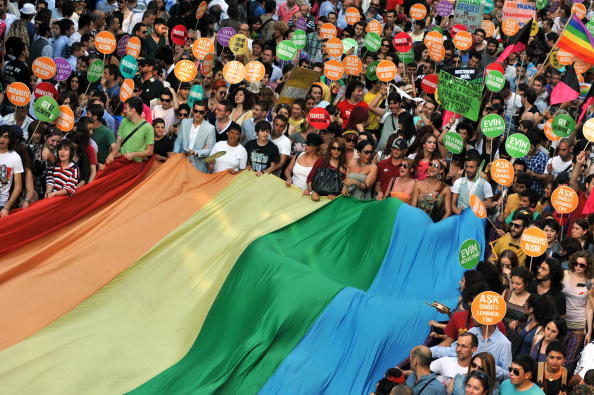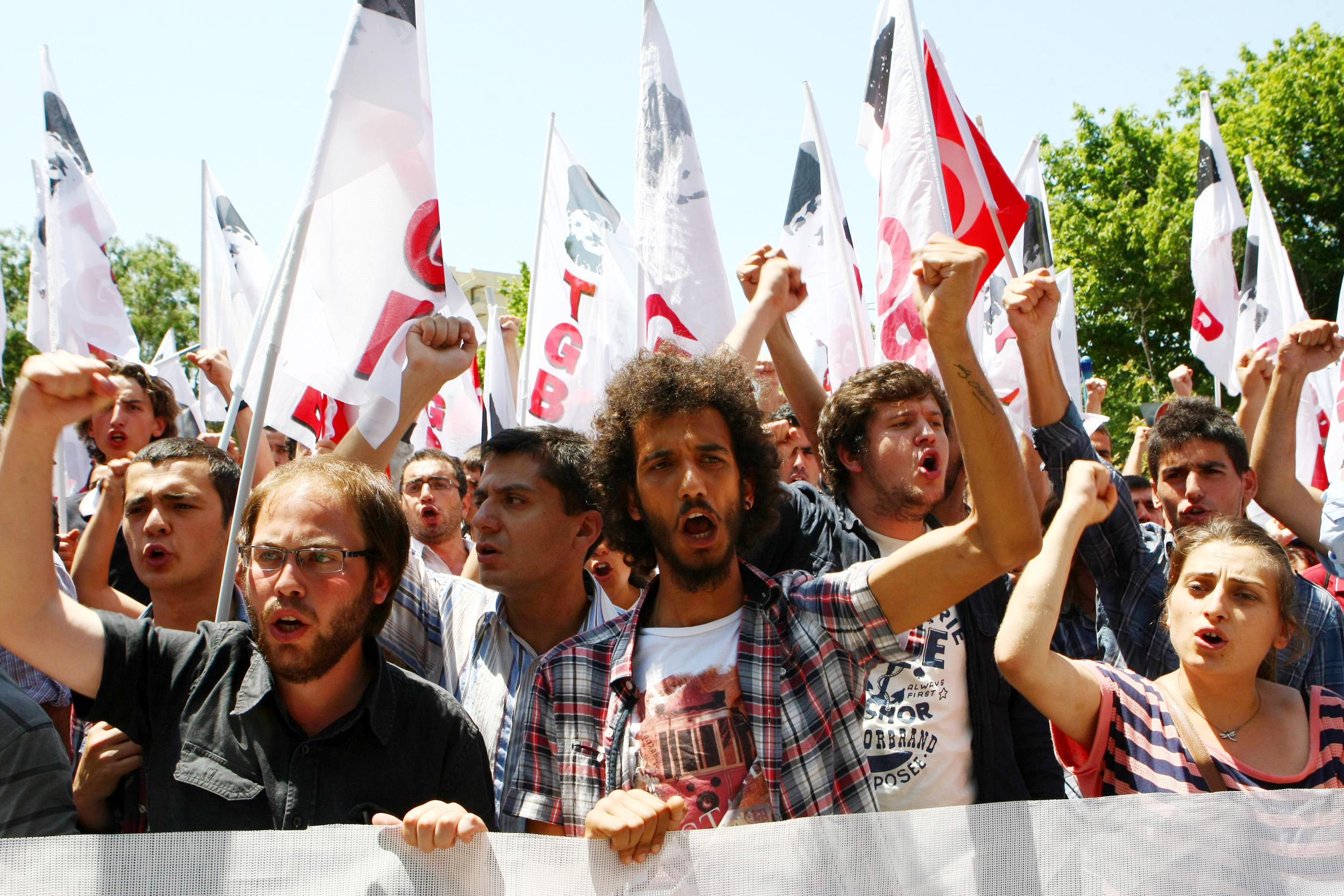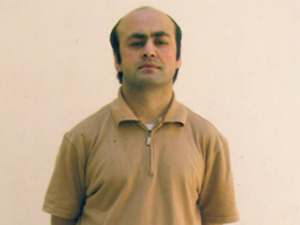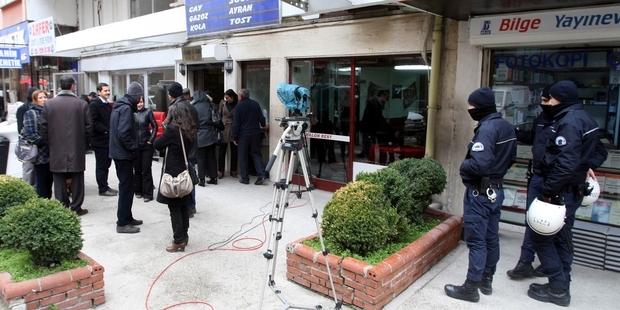
Police raids in several Turkish cities have resulted in the arrest of 15 human rights lawyers, including from the the Contemporary Lawyers’ Association.© ADEM ALTAN/AFP/Getty Images
It is hard to ignore the increasingly grave human rights situation in Turkey, where, as part of a broader crackdown on leftists, Turkish police raided residences and offices last night, arresting scores of individuals.
Amnesty notes that, among those detained, were fifteen “human rights lawyers known for defending individuals’ right to freedom of speech and victims of police violence.” Some of those arrested had previously voiced to Amnesty their fear of arrest due to their work defending those standing trial under Turkish anti-terrorism laws.
Andrew Gardner, Amnesty International’s researcher on Turkey, notes:
“The detention of prominent human rights lawyers and the apparent illegal search of their offices add to a pattern of prosecutions apparently cracking down on dissenting voices. Human rights lawyers have been just some of the victims in the widespread abuse of anti-terrorism laws in Turkey. The question to ask is: who will be left to defend the victims of alleged human rights violations?”
